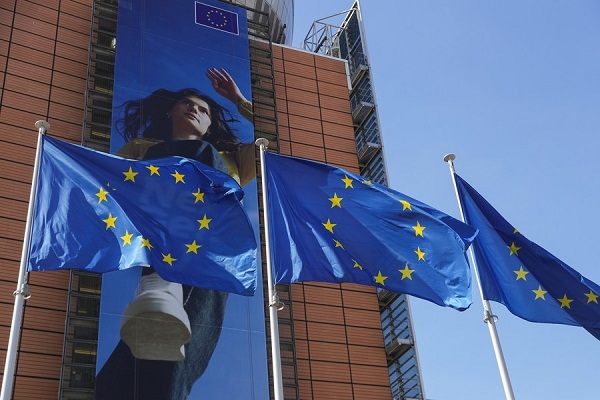
Rome, (Asian independent) The decision by the European Union (EU) earlier this week to ban 90 per cent of oil imports from Russia by the end of the year is aimed at crimping the Russian economy amid the high-profile crisis in Ukraine.
But the move, part of a wider array of sanctions, is also likely to result in still higher energy prices, while exposing political rifts within the 27-nation bloc, experts said.
The European leaders’ move covers only seaborne imports of Russian oil, allowing a temporary exception for pipeline oil. This carve-out from the ban benefits Hungary, a land-locked EU member state that gets nearly all of its crude from Russia through pipelines, Xinhua news agency reported.
Ursula von der Leyen, President of the European Commission, said that despite the exemption granted to Hungary, the prohibition would still cover the bulk of Russian oil imports to the EU.
But the move comes at a cost. According to official data from the Commission, consumer prices in the eurozone rose by a record 8.1 per cent in May on the heels of a 7.4 per cent increase in April.
The most significant factors contributing to the dramatic increase in prices, according to economists, were directly or indirectly related to energy costs: transport, industry, agriculture and supply chain issues.
Cutting off most Russian oil imports is likely to put more upward pressure on prices, according to many analysts.
The European leaders’ decision has already sent oil futures higher, with contracts for July deliveries surging 3.5 per cent on Monday, the day when the Commission made its announcement.
But the exemption made for energy-poor Hungary is also evidence of growing rifts between the EU member states, according to media reports. The decision could incentivise other countries to seek out special exemptions on future decisions.
Joining Hungary, Italy and the Czech Republic also broke from most of the pack in the EU in calling for a negotiated settlement to the Ukraine conflict rather than a policy focused mostly on continuing to provide funds and arms for Ukraine.
That stance did not prevent European leaders from agreeing this week to provide an additional 9 billion euros ($9.6 billion) in financing for Ukraine.
The latest round of sanctions will also include a freeze on Russian assets outside the country and will exclude Russia’s largest bank, Sberbank, from the international SWIFT transfer system.
Some Russian broadcasters were also blocked from distributing their content commercially in the EU.
The moves were legally endorsed by all 27 EU member states on Wednesday.
Charles Michel, President of the European Council, called this week’s agreement a “remarkable achievement”.
But analysts said that with the growing disagreements between member states, it may be more difficult to gain full agreement for future rounds of sanctions against Russia.







